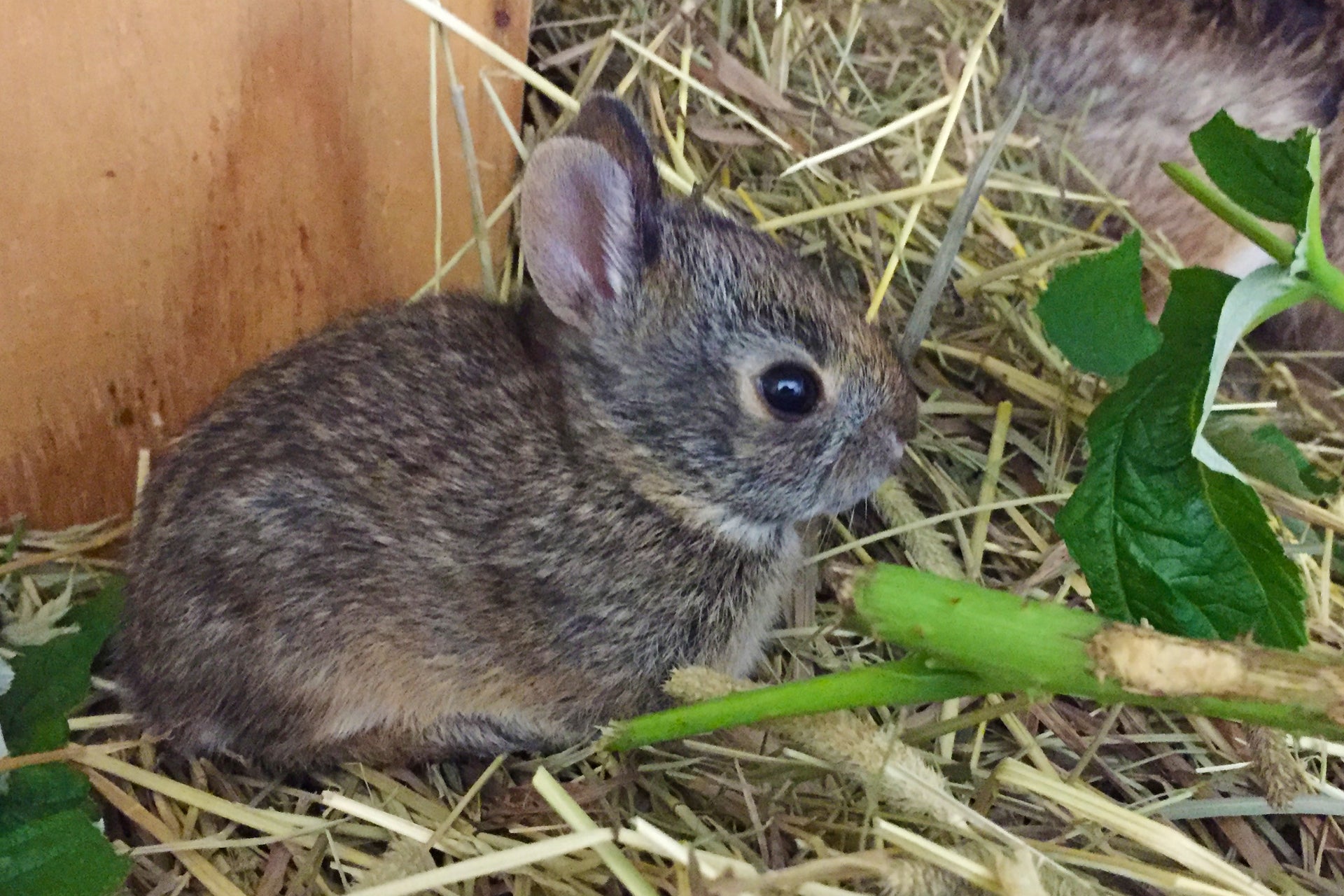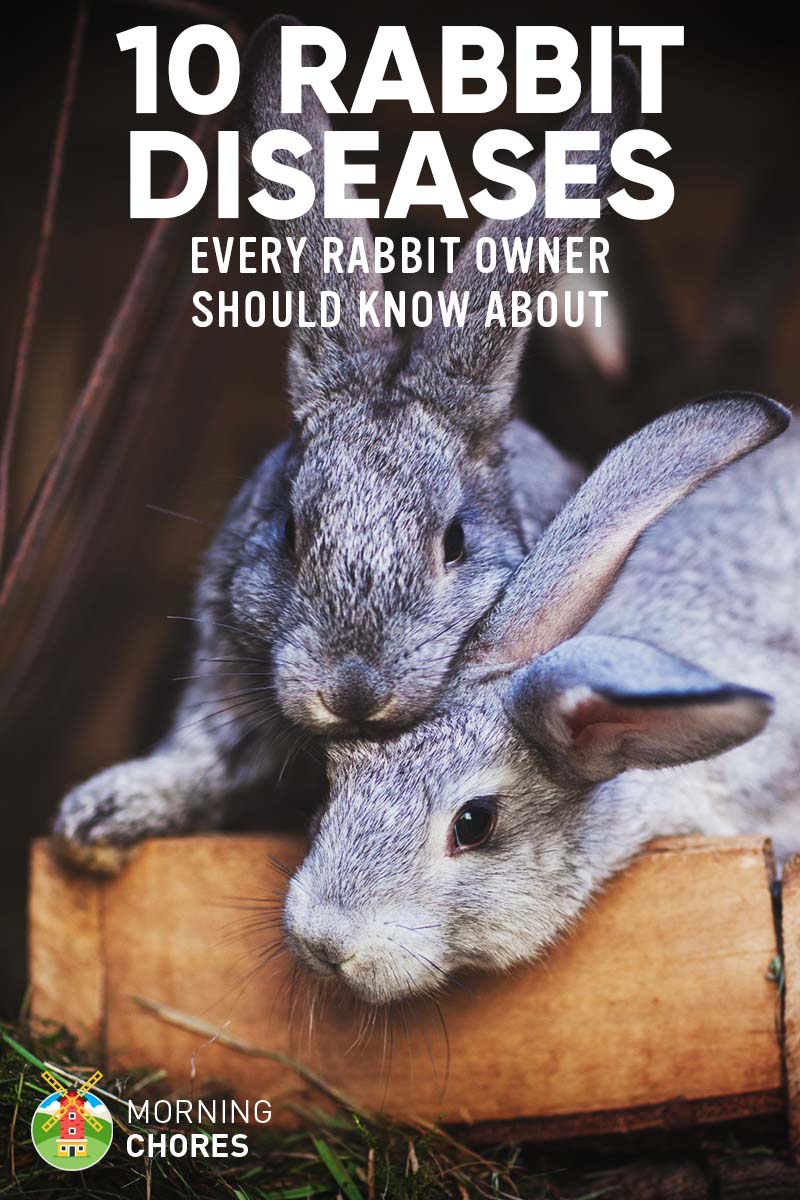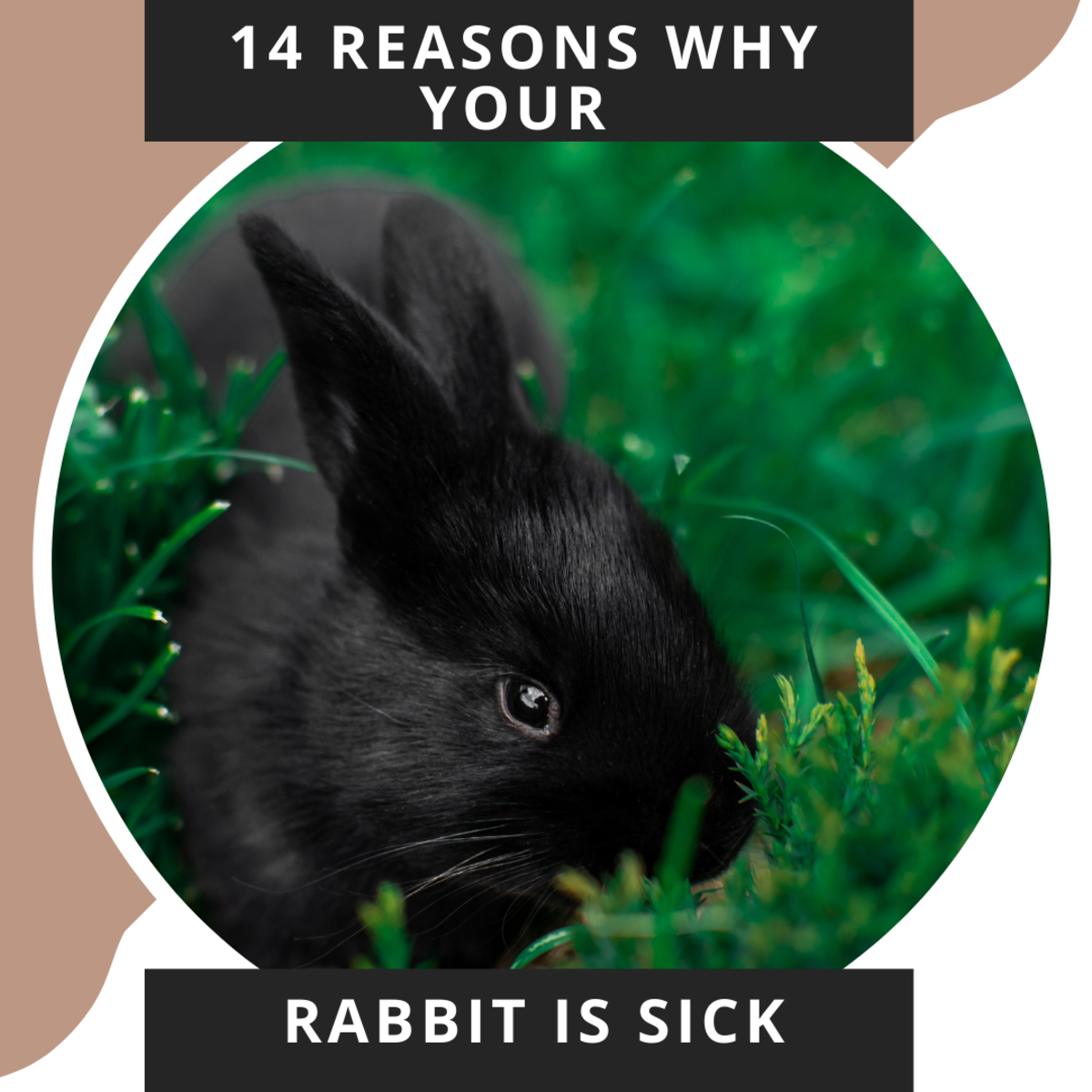Wild baby rabbits are among the most adorable animals, but unfortunately, they are also prone to a variety of diseases. Knowing the signs and symptoms of common wild baby rabbit diseases can help you recognize and treat them in a timely manner. This article will provide an overview of the most common wild baby rabbit diseases and what you need to know to keep your rabbit healthy.
Do Wild Baby Bunnies Carry Diseases?

Wild baby rabbits can carry a variety of diseases and parasites, some of which can be transmitted to humans and other animals. Common diseases that wild baby rabbits carry include tularemia, leptospirosis, and coccidiosis. Tularemia is a bacterial infection that can be spread through contact with an infected rabbit’s saliva, urine, or feces, or through a bite or scratch. Leptospirosis is a bacterial infection most commonly spread through contact with an infected animal’s urine. Coccidiosis is a parasite infection that is spread through contact with an infected rabbit’s feces.
It is important to practice safe handling when interacting with wild baby rabbits in order to avoid contracting any of these diseases. Always wash your hands after handling a wild baby rabbit or coming in contact with its environment, and wear protective clothing such as gloves. If you suspect that a wild baby rabbit is ill, seek medical advice immediately. Vaccinations are available for some of these diseases, and it is important to keep your pet rabbit up to date on their vaccinations to protect them from contracting any of these wild baby rabbit diseases.
Common Wild Baby Rabbit Diseases

Pasteurellosis
Pasteurellosis is a bacterial infection caused by the Pasteurella multocida bacteria that affects the upper respiratory tract of wild baby rabbits. Symptoms of Pasteurellosis include sneezing, nasal discharge, difficulty breathing, and conjunctivitis. Treatment for this disease typically involves the use of antibiotics.
Myxomatosis
Myxomatosis is a viral disease that is spread by contact with an infected wild baby rabbit or by the bite of an infected flea or mosquito. Symptoms of this disease include swollen eyes, skin lesions, and fever. This disease is usually fatal, so preventing contact with other wild baby rabbits is essential in keeping your rabbit safe.
Ear Mites
Ear mites are tiny parasites that live in the ears of wild baby rabbits. Symptoms of ear mites include head shaking, scratching at the ears, and an accumulation of brown wax in the ear canal. Treatment typically involves the use of special ear mite drops or sprays.
Gastrointestinal Stasis
Gastrointestinal stasis is a condition in which the digestive system of a wild baby rabbit slows down or stops functioning properly. Symptoms of this condition include decreased appetite, bloating, and lethargy. Treatment typically involves the use of medications to help stimulate the digestive system.
Salmonella
Salmonella is a bacterial infection that affects the gastrointestinal tract of wild baby rabbits. Symptoms of this disease include fever, diarrhea, and vomiting. Treatment typically involves the use of antibiotics.
Coccidiosis
Coccidiosis is an intestinal parasite that affects wild baby rabbits. Symptoms of this disease include weight loss, diarrhea, and dehydration. Treatment typically involves the use of antibiotics and other medications to kill the parasites.
Viral Haemorrhagic Disease
Viral haemorrhagic disease (VHD) is a highly contagious virus that affects wild baby rabbits. Symptoms of this disease include fever, lethargy, and bleeding from the nose and mouth. Treatment typically involves the use of supportive care and medications to help keep the rabbit comfortable.
Blood Parasites
Blood parasites are tiny parasites that live in the blood of wild baby rabbits. Symptoms of blood parasites include anemia, weight loss, and an enlarged spleen. Treatment typically involves the use of medications to kill the parasites.
How to Prevent Wild Baby Rabbit Diseases

Vaccination
Do baby bunnies have diseases? Yes, they can. Vaccination is one of the best ways to protect your pet rabbit from disease. Vaccinate your rabbit against the common diseases, such as Myxomatosis and Viral Haemorrhagic Disease (VHD). Make sure your veterinarian provides your rabbit with the most up-to-date vaccinations.
Sanitation
Practicing good sanitation is essential for keeping your rabbit healthy. Clean their cage regularly and keep it free of debris and other potential sources of infection. This includes avoiding contact with other animals that could carry diseases and making sure your rabbit has clean, dry bedding.
Diet
A balanced, high-fiber diet is essential for wild baby rabbits. Feed your rabbit fresh vegetables and fruits, hay, and specially formulated rabbit pellets. Avoid feeding sugary foods or treats, as these can cause health problems.
Parasite Control
Parasites can cause serious health problems in rabbits. Regularly check your rabbit for fleas, mites, and other parasites, and treat any infestations promptly. Ask your veterinarian for advice on the best way to control parasites in your rabbit.
How to Treat Wild Baby Rabbit Diseases
Antibiotics
Antibiotics are the first line of defense for treating wild baby rabbit diseases. Depending on the severity of the infection, antibiotics may be administered orally or via injection. In some cases, antibiotics may also be administered topically to treat skin infections. It is important to ensure that the antibiotics prescribed are effective against the type of disease being treated.
Supportive Care
To treat wild baby rabbit diseases, supportive care is also important. This includes providing the rabbit with adequate nutrition, warmth, and a comfortable environment. In addition, providing the rabbit with plenty of fresh water and making sure it gets plenty of exercise is essential for maintaining its health.
Anti-Parasitic Medication
For some wild baby rabbit diseases, anti-parasitic medication may be necessary. This medication may be administered orally or topically, depending on the type of parasite. It is important to follow your veterinarian’s instructions when administering anti-parasitic medication to ensure the safety of your pet.
Frequently Asked Questions
What are the Most Common Diseases in Wild Baby Rabbits?
Wild baby rabbits are susceptible to a variety of diseases, including bacterial and viral infections, parasites, and nutritional deficiencies. The most common diseases in wild baby rabbits include: pasteurellosis, Encephalitozoon cuniculi, ear canker, myxomatosis, snuffles, ringworm, mange, malocclusion, and fungal infections. It is important to be aware of these diseases and take preventive measures to keep your rabbit healthy.
What signs should I look for to determine if my wild baby rabbit has a disease?
Weight Loss: Unexpected weight loss is an indication of a possible underlying health issue. Monitor your rabbit’s weight as you feed them to ensure they are maintaining a healthy weight.
Change in Appetite: If your rabbit suddenly stops eating or refuses their favorite treats, this could be a sign of disease.
Lethargy and Unusual Behavior: Changes in behavior and activity level can be a sign of illness. Look for signs of depression, lack of energy, and changes in habits.
Discharge from Nose/Eyes: Nasal and eye discharge can be a sign of an upper respiratory infection. If you notice any discharge, contact your veterinarian immediately.
Diarrhea: Diarrhea can be a sign of an infection or a more serious underlying illness. Monitor your rabbit’s stool for any changes in consistency and contact your veterinarian if the diarrhea persists.
Are there any vaccinations I should consider to protect my wild baby rabbit from disease?
Vaccinations are an important way to protect your wild baby rabbit from preventable diseases. Vaccinations for the most common rabbit diseases, such as rabbit haemorrhagic disease (RHD) and myxomatosis, are available from veterinarians. It is important to ensure your wild baby rabbit is vaccinated regularly in order to protect them from disease. Discuss the best vaccination schedule with your veterinarian.
Can Wild Baby Rabbits Contract Diseases from Other Animals?
Yes, wild baby rabbits are subject to the same diseases as domestic rabbits, and can contract diseases from other animals in their environment. This includes:
- Parasites: fleas, lice, and mites can be transmitted from other animals to wild baby rabbits.
- Viral diseases: viruses such as rabbit hemorrhagic disease, rabbit calicivirus, and myxomatosis can be spread from other animals.
- Bacterial diseases: bacteria such as pasteurellosis and bordetellosis can be spread from other animals.
- Fungal diseases: fungi such as ringworm can be spread from other animals.
Wild baby rabbits should be monitored for signs of illness, such as loss of appetite, lethargy, and diarrhea. If any of these signs are present, contact a veterinarian immediately as some of these diseases can be fatal. Vaccines may be available to help protect wild baby rabbits from certain diseases, but should be discussed with a veterinarian.
Are there any natural remedies that can help keep my wild baby rabbit healthy?
Yes, there are several natural remedies that can help keep your wild baby rabbit healthy:
- Monitor your rabbit’s diet. Feed them a variety of fresh vegetables and hay, and limit their access to treats. Avoid processed foods as much as possible.
- Provide your rabbit with plenty of fresh water and a high-quality pellet-based diet.
- Keep your rabbit’s living environment clean and hygienic. This includes regular brushing, cleaning of their fur, and providing them with comfortable bedding.
- Provide your rabbit with plenty of exercise and playtime. This will help them stay active and healthy.
- Take your rabbit to the vet for regular checkups. This can help you stay on top of any potential problems or health issues.
- Use natural remedies for minor issues, such as using apple cider vinegar to treat ear mites.
- Provide your rabbit with plenty of mental stimulation. This can include offering them toys, playing with them, and providing them with interesting hiding places.
By following these simple steps, you can help keep your wild baby rabbit healthy and happy.
Conclusion
Wild baby rabbits are susceptible to several diseases, so it is essential to take the necessary steps to keep them healthy. Knowing the signs of common illnesses and understanding the correct preventative measures are key to maintaining good rabbit health. Regular checkups with a veterinarian, a balanced diet, plenty of exercise, and proper hygiene will help keep your rabbit healthy and safe.
